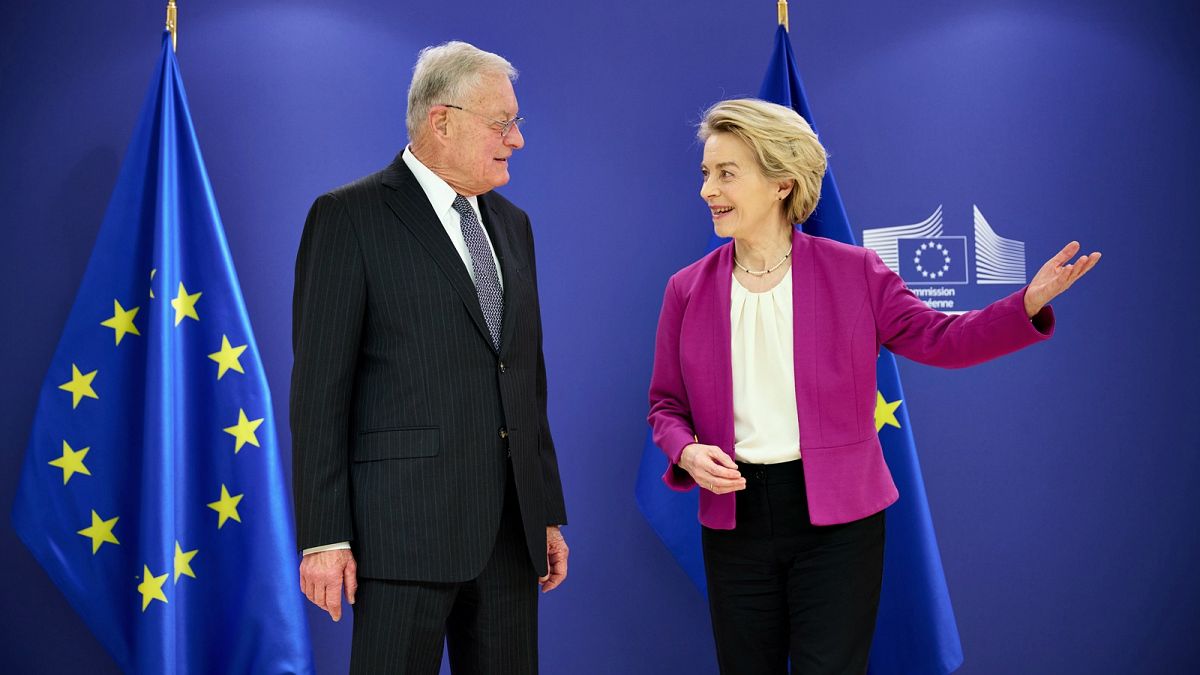Europe
Europe’s seat at the table still uncertain after diplomatic flurry

Europe’s Quest for a Seat at the Negotiating Table: A Path Paved with Uncertainty
In recent diplomatic endeavors, Ursula von der Leyen, António Costa, and Keith Kellogg have found themselves at the center of discussions aimed at ending Russia’s conflict with Ukraine. Their meetings highlight Europe’s struggle to secure a role in the negotiations, despite being a significant player in the crisis. Keenly aware of the bloc’s interests, both von der Leyen and Costa emphasized the EU’s commitment to peace and support for Ukraine, yet the outcomes of their discussions with Kellogg offer little reassurance of Europe’s inclusion in the talks. This scenario underscores the delicate balance of power and the shifting dynamics in international diplomacy.
Key Points and Worrisome Signs
A central issue emerging from these meetings is the lack of clarity on Europe’s involvement in the negotiations. While Marco Rubio suggested the EU might join discussions, particularly concerning sanctions relief, this proposition conflicts with the EU’s stance of holding Russia accountable for its aggression. The bloc’s recent financial support to Ukraine, using frozen Russian assets as collateral, exemplifies its commitment, making any consideration of sanctions relief a contentious issue. Furthermore, the nature of the talks as described by Kellogg—a dual-track approach involving separate discussions with Russia and Ukraine—poses concerns for Europe, as it risks exclusion from pivotal decisions affecting its own security and interests.
A Seat at the Table: Europe’s Uncertain Future
Europe’s exclusion from the negotiating table remains a pressing concern. Despite reassurances from Rubio that the EU would be involved, the structure of the talks as outlined by Kellogg suggests that Europe’s role might be limited to specific aspects like sanctions. European leaders, including Macron, have emphasized the need for robust security guarantees and a just peace, reflecting worries that a rushed agreement might只是 temporarily halt hostilities, allowing Russia to regroup. The meetings in Paris, convened by Macron, demonstrated a united front in supporting Ukraine, yet divisions on security measures persist, indicating the complexity of achieving consensus among EU members.
Rising Concerns and Leadership Challenges
The meetings have not only highlighted Europe’s uncertain position but also revealed internal divisions and the challenges faced by its leaders. Von der Leyen and Costa’s assertions of Europe’s readiness to support Ukraine, both financially and militarily, contrast with the lack of concrete assurances from Kellogg. These leaders must navigate the delicate task of maintaining unity among EU members while advocating for a significant role in negotiations. Their efforts are further complicated by the geopolitical dynamics at play, particularly the direct engagement between the US and Russia, which has drawn criticism for bypassing traditional alliances.
The White House’s Tricky Position
The involvement of the US, particularly through figures like Rubio and Kellogg, adds another layer of complexity to Europe’s quest for a seat at the table. Rubio’s suggestion of including the EU in sanctions discussions contrasts with the bloc’s firm stance against such relief, highlighting potential friction. The dual-track approach advanced by Kellogg, focusing on separate dialogues with Russia and Ukraine, leaves Europe in a precarious position, emphasizing its role as a secondary player. Meanwhile, the White House’s questionnaire on European willingness to deploy peacekeeping forces introduces new dimensions to the conflict, testing the bloc’s commitment and unity.
Conclusion: A Delicate Dance of Power and Unity
In conclusion, Europe’s struggle to secure a role in ending the Russia-Ukraine conflict reflects a broader challenge in maintaining relevance in a rapidly evolving geopolitical landscape. The meetings with Kellogg, while productive in affirming Europe’s resolve, have not yielded the desired clarity on its inclusion in negotiations. As the situation unfolds, European leaders must continue to advocate for a seat at the table, ensuring that their voices are heard and their interests represented. The path ahead is fraught with challenges, requiring a delicate balance of diplomacy, unity, and strategic engagement to shape a just and enduring peace.


















